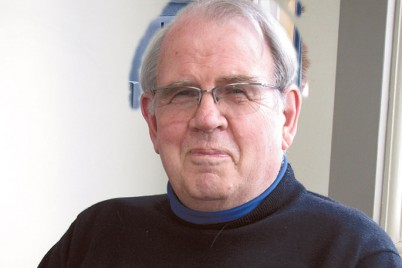It was with immense sadness that we learned of the passing of Dr Bruce Scoggins on 18 March 2022. Dr Scoggins was the first chief executive of the Health Research Council of New Zealand (HRC), from 1991 until his retirement in 2006.
During that time, he instituted the robust and transparent processes that the HRC continues to build on today. He managed the transition of the HRC’s funding from Vote Health to Vote Research Science and Technology, and the associated move to full-cost funding of research; and introduced the country’s first health research portfolios and priority areas. The culture of excellence, transparency, and accountability that he created underpinned a four-fold increase in the HRC’s funding for health research by the time he retired in 2006.
Those that worked closely with Bruce during that time were in awe of his constant stream of ideas and his ability to track international trends and practices. He thought deeply about how these could be applied in New Zealand and was constantly seeking to promote, innovate and improve health research funding in this country.
The HRC’s Partnership Programme was born out of his desire to better connect policymakers with the best health researchers, increase the value, utility and scope of what was possible, and provide high-quality evidence for government policy. The HRC’s goals and objectives today have grown and expanded on many of these foundational principles.
An important part of his legacy at the HRC is the increase in the Māori health research workforce that has occurred over the last 30 years and the mātauranga Māori that these world-leading indigenous researchers have generated.
Professor Te Kani Kingi (Executive Director of Research and Innovation, Te Whare Wananga o Awanuiarangi) says this is a result of Dr Scoggins developing, piloting, and orchestrating a number of key initiatives designed specifically to build the Māori health research workforce.
Professor Kingi says that Dr Scoggins had many challenges to overcome in order to prioritise investment for Māori health workforce development and investigate proactive, innovative and, at times, controversial solutions. He believes that the gains enjoyed today would not be possible if it was not for this tenacity and dedication to improving health outcomes for Māori.
Dr Scoggins also oversaw the establishment of the HRC’s Pacific Health Research Committee and was a strong advocate for building Pacific research capability and addressing the research needs of New Zealand’s Pacific population.
Before joining the HRC, Dr Scoggins had an illustrious career as a scientist, starting as a Fulbright Scholar and spanning two decades at the Howard Florey Institute of Experimental Physiology and Medicine in Melbourne.
He was the Gordon Meiklejohn Professor of Medicine and Executive Director and President at the Colorado Prevention Center, University of Colorado. Dr Scoggins established the centre and developed a research programme to improve the delivery of preventative healthcare to infants in Hispanic, Afro-American and European families of low socio-economic status.
During his career he authored 400 peer-reviewed papers, chapters, reports, and books. He was an authority on the control of circulation in animals and humans and his studies developed understanding of the mechanism by which stress causes an elevation in blood pressure.
Dr Scoggins continued to make a major contribution after his retirement, acting as a consultant for government ministries and health organisations, and giving generously of his time to support the investment of charities in health research. In addition to serving on the Lottery Health Research Awards Committee, Dr Scoggins chaired the Medical and Science Advisory Committee for Cure Kids and served on their Board for the last 15 years.
His wisdom, encyclopaedic knowledge and wry sense of humour will long be remembered and missed. Our sector has lost a great champion who helped shape the work we all do today.
